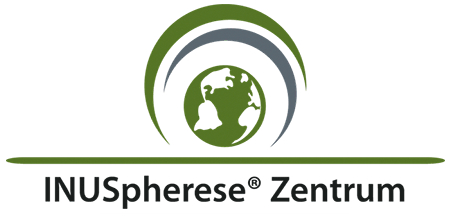Basic knowledge
Attention Deficit Hyperactivity Disorder (ADHD)

For many parents, their world collapses when their child is diagnosed with attention deficit hyperactivity disorder (ADHD). ADHD is one of the so-called hyperkinetic disorders and is referred to as a behavioral and emotional disorder that begins in childhood or adolescence.
The most common symptoms are:
- Lack of concentration and inattentiveness
- Impulsiveness
- Pronounced physical/motor restlessness (hyperactivity)
In addition, other symptoms such as depressive moods, anxiety, reading and/or writing problems may be more or less pronounced.
Attention Deficit Disorder (ADD) is very similar to ADHD. However, the absence of hyperactivity in this disease is why ADD is often referred to as ‘silent ADHD’. Both can occur not only in childhood, but also in adults.
Its cause has not yet been conclusively determined. Current scientific observations, however, suggest three causes:
- Genetic disposition: disturbances in individual neuronal control circuits lead to an over- or under-supply of various neurotransmitters (dopamine, norepinephrine), with the consequence of disrupted self-regulation. This would also explain the frequency of occurrence within particular families.
- Prenatal influences, such as alcohol, drugs, infections, emotional stress or complications during childbirth (injuries); although not all of these factors necessarily lead to ADHD.
- Psychosocial factors: the family and school environment certainly cannot be considered the cause of ADHD, but they can significantly influence the course of the disease.
Our Approach for ADHD
As a first step, we clarify further possible causes:
- Heavy metal exposure as a result of the amalgam fillings of the mother during pregnancy
- Food intolerances, for example to gluten and/or milk protein
- Fatty acid deficiency, in particular omega-3
- Lack of important minerals, vitamins or trace elements
- Metabolic disorders
- Chronic viral or parasitic burdens
- Intestinal dysbiosis, leaky gut
Our therapeutic approach for ADHD
Suffering is intense for the children, as well as for their families, which is why quick help is required. We offer extensive therapeutic options to bring ‘peace of mind’ back into the lives of those affected and their entire family.
- Individual homeopathic constitutional treatment: the aim of this treatment is to avoid the use of psychostimulants such as methylphenidate.
- Vital field diagnostics: measuring the electromagnetic fields, i.e. the vital fields of the body. Vital field therapies for reorganizing and harmonizing the body through the impulse of electromagnetic waves. This type of therapy is completely painless and therefore particularly suitable for children.
- Vitamin deficiency symptoms: supplementation orally, intramuscularly or intravenously.
- Detailed nutritional advice and planning for confirmed food intolerances.
- Individual intestinal structure and milieu therapy in the case of confirmed intestinal dysbiosis.
- Drainage of identified toxins orally, via vital field therapy or intravenously.
- Psychotherapeutic support to harmonize the family structure and to learn various techniques to better master everyday life. It is important that not only those affected, but all persons in their immediate environment, are trained accordingly.
Suitable therapies in the Alpstein Clinic

A Statement from
Dipl. physician Birgit Kohl MSc
We care for your children in the same way we would like our own children to be cared for – professionally and considerately.
